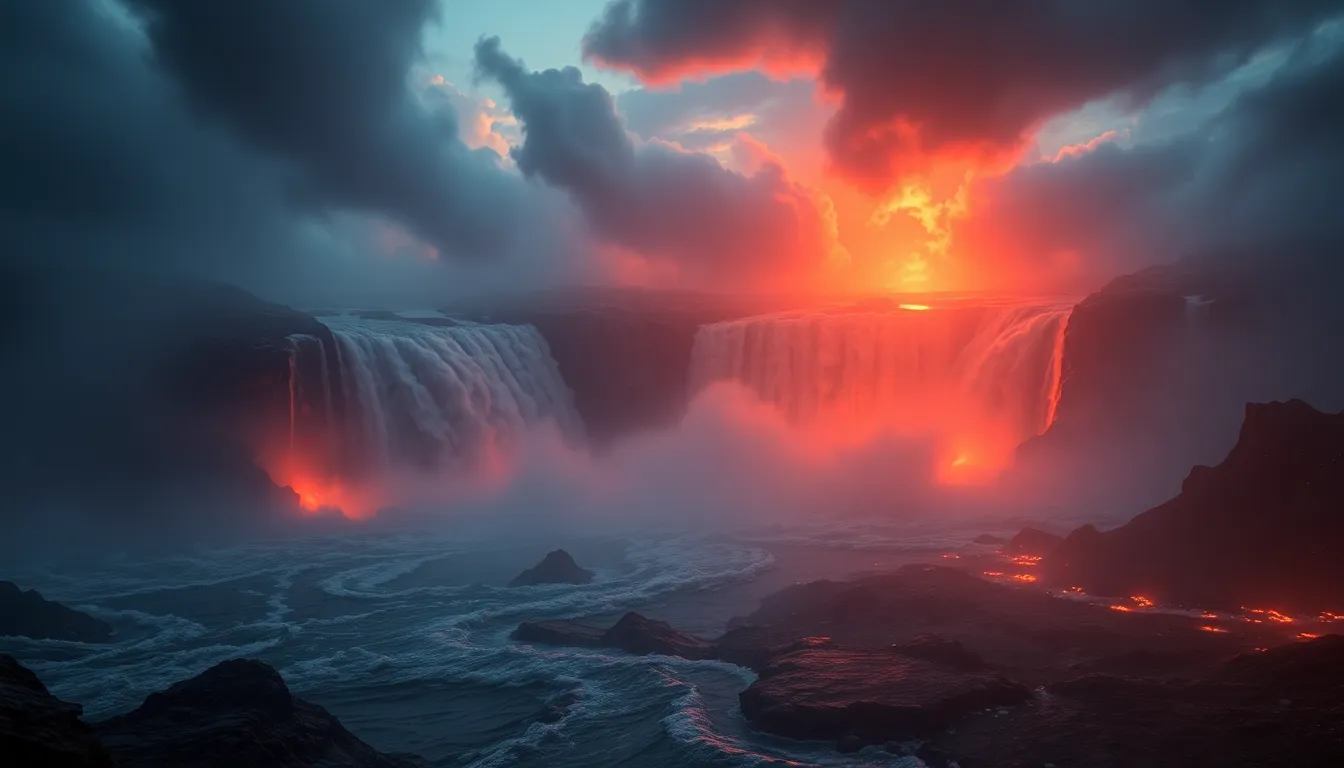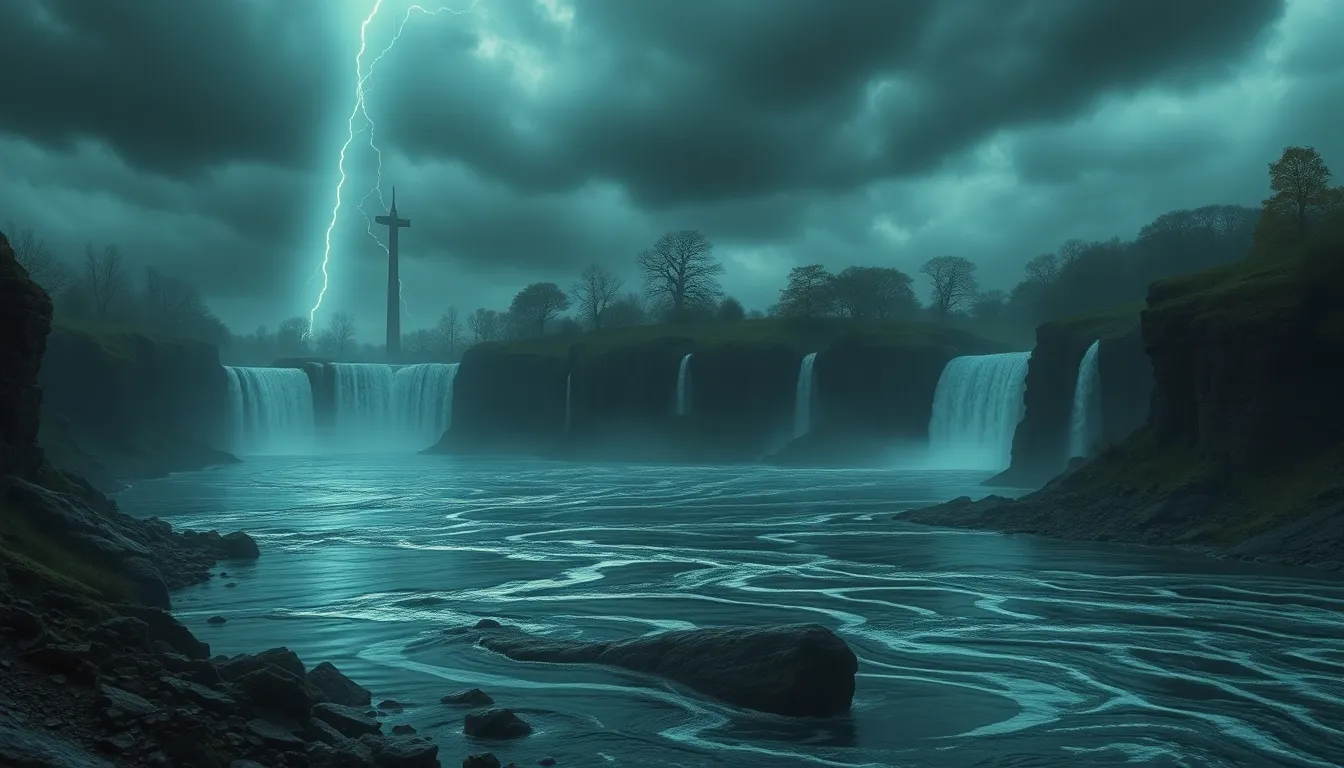The Flood and the Power of Nature: Myths That Warn Against Complacency
Introduction: The Intersection of Myth and Nature
Floods have been a significant part of human history, not only as natural disasters but also as powerful symbols in myth and literature. Across cultures, these catastrophic events are often depicted in stories that reveal humanity’s relationship with nature. The significance of floods transcends mere destruction; they serve as metaphors for nature’s overwhelming power, reminding us of our vulnerability and the need for respect.
Understanding Flood Myths Across Cultures
Flood myths are prevalent in various cultures, each offering unique insights into human experience and the forces of nature. Some notable examples include:
- Noah’s Ark – In Judeo-Christian tradition, Noah is chosen by God to build an ark to save his family and pairs of animals from a great flood meant to cleanse the earth of wickedness.
- The Epic of Gilgamesh – This ancient Mesopotamian text features a flood narrative where Utnapishtim is warned by the god Ea to build a boat to survive a catastrophic flood.
- Deucalion – In Greek mythology, Deucalion and his wife Pyrrha survive a flood sent by Zeus to destroy humanity, paralleling the themes of rebirth and survival found in other myths.
Common themes in these stories include divine retribution, the importance of righteousness, and the idea of survival through preparation. They reflect humanity’s struggle against nature’s unpredictability and serve as warnings against moral decay.
The Psychological Impact of Flood Myths
Flood myths shape our understanding of nature’s unpredictability. They instill a sense of fear and respect that can influence our behavior in the face of natural disasters. The psychological impact includes:
- Understanding the limits of human control over nature
- Instilling a sense of caution and preparedness
- Fostering community solidarity in times of crisis
These narratives remind us that natural disasters are not just random events but part of a larger, often incomprehensible system that demands our respect and understanding.
Historical Flood Events and Their Cultural Responses
Throughout history, significant flood events have led to profound cultural responses, often resulting in the creation or adaptation of myths. For instance:
- The 1931 China floods, one of the deadliest natural disasters in history, led to a reassessment of water management and flood control practices.
- The floods of 1889 in Johnstown, Pennsylvania, resulted in the establishment of stricter regulations on dam construction and maintenance.
These events not only shaped local myths but also influenced societal behavior, leading to greater awareness and preparedness for future floods.
The Role of Nature in Shaping Human Civilization
Floods are paradoxical; while they are destructive forces, they also contribute to the fertility of land. Historically, civilizations have thrived in flood-prone areas due to the rich soil deposits left behind. For example:
- The Nile River’s annual floods have supported Egyptian agriculture for millennia.
- The Indus Valley civilization flourished in a region characterized by seasonal flooding, which enriched the soil.
This duality of nature’s power highlights the complex relationship humans have with their environment, where destruction can yield creation.
Modern Interpretations of Flood Myths
In contemporary society, ancient flood narratives continue to resonate, particularly in discussions surrounding climate change and environmental stewardship. The relevance of these myths can be seen in:
- The rising frequency of catastrophic floods due to climate change, echoing the warnings of ancient tales.
- Calls for sustainable practices that honor the lessons of the past, urging communities to respect nature’s power.
Modern interpretations invite a re-examination of these myths, encouraging a proactive approach to environmental challenges.
Complacency in the Face of Natural Disasters
Despite the lessons embedded in flood myths, complacency remains a significant issue when it comes to disaster preparedness. Historical examples include:
- The 2005 Hurricane Katrina disaster, where inadequate preparation and response led to catastrophic consequences.
- The 2010 Pakistan floods, which were exacerbated by governmental inaction and lack of infrastructure.
These events illustrate how societal complacency can lead to disaster, emphasizing the need for vigilance and readiness in the face of natural threats.
Lessons from Flood Myths: Preparing for the Future
Flood myths offer valuable lessons that can inform modern disaster preparedness:
- Emphasize the importance of planning and infrastructure improvements.
- Encourage community engagement and education about flood risks.
- Promote respect for nature through sustainable practices and policies.
By learning from past narratives, communities can develop strategies to mitigate flood risks and enhance resilience.
The Importance of Respecting Nature’s Power
Shifting our mindset from exploitation to respect for natural forces is crucial. Education plays a vital role in fostering environmental consciousness, encouraging individuals to:
- Understand the interconnectedness of ecosystems
- Recognize the implications of climate change
- Advocate for policies that protect natural resources
Respecting nature’s power is not merely an act of reverence but a necessity for survival in an increasingly unpredictable world.
Conclusion: Bridging Myths and Modernity
The enduring relevance of flood myths serves as a reminder of the lessons learned over centuries. As we face the challenges posed by climate change and natural disasters, we must embrace the wisdom of the past to inform our future interactions with nature. By respecting nature’s power and preparing for the unpredictable, we can forge a path toward sustainability and resilience.




